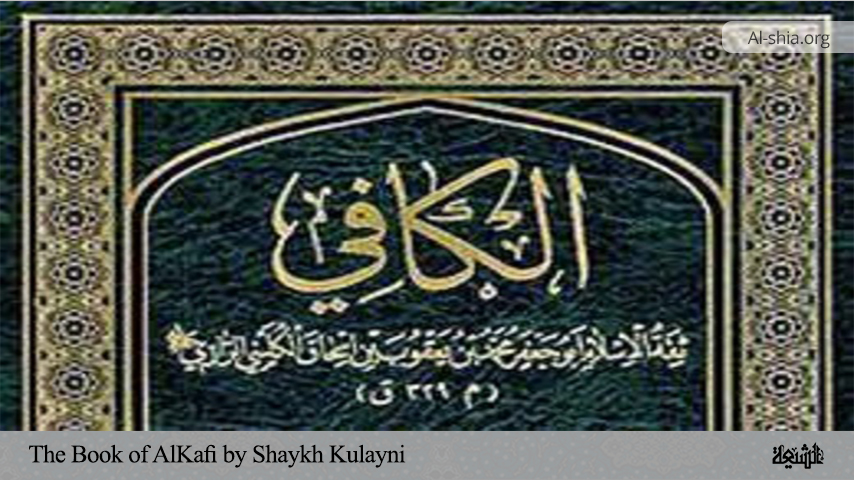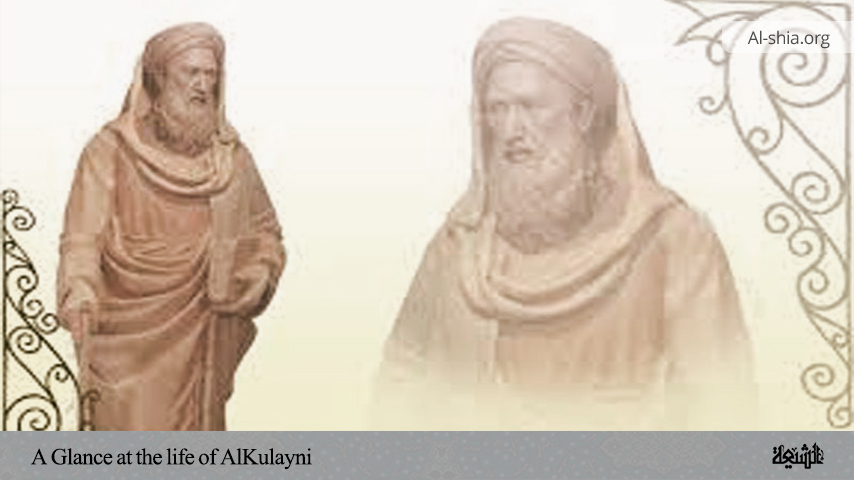According to the theory of functional perfection, explained by the Holy Qur’an, it shows that the role of the woman and the role of man are both studied within the frame of Islamic aims and values. So, woman is not a secondary element nor is she a second class citizen, though the human experience has shown that the role of the man in building science and economy is greater than that of woman. While, the role of woman in building the psychological base of the family is greater than that of the man.
The Qur’an expresses this fact by saying: “and from it did He make his mate that he may dwell resting unto her.” Hence, it is the husband who feels at ease with the wife and is quiet through living with her. So, she is the center of attraction and the frame of tranquility, affection and love.
The Qur’an talks about `tranquility’ in numerous places. With that, we can understand tranquility that the wife secures for her husband. We understand that through Allah’s words, the Exalted: “And of His signs is that He created for you from yourselves, mates that you may dwell (inclined) unto them, and caused between you love and compassion.” “…then made He from it its mate”.
We may also understand `tranquility’ in society when we understand the Qur’an’s description of the relation between the husband and wife as the relation of `tranquility, affection, and mercy’. Therefore, it is necessary to understand what the word tranquility or `sakan’ in Arabic means.
The Arabic term “Sakina” means tranquility, stability, sobriety, and dignity.(1)
With this, we understand the meaning of sakan or tranquility, which the wife provides for her husband and her family. In other words, we understand that sakan means rest, stability, sociability, mercy, blessing, and dignity. With this, we also understand why the Qur’an has used the word `sakan‘ with different meanings. Scientific studies have indicated that man’s psychological conditions have effects on his activities in life.
It is well-known that the psychological conditions of the man and woman affect their social activities, such as agriculture, industry, trade, teaching, medicine, and the like. Hence, material production decreases when the man leads a life full of family difficulties and psychological tension. Such a man will have no ability to carry out his social duties as good as possible. Meanwhile, he will have tense relations with his work mates. Therefore, the nature of the relations between the man and woman affects the level of production and development.
Moreover, the woman plays a significant role in building society intellectually, materially, and morally, for she brings up and educates her children. The child will have a good character when he leads a life free from anxiety, tension, and family problems. Besides, he will have good relations with others, unlike the child who has a troubled character when he leads a life full of family problems. Such a child may have bad and aggressive behavior.
So, corrupt education is the reason for all crimes that occur in society. The mother contributes as the father does in other fields. She contributes in positive education. She has the ability to make her child love work and to be punctual and to urge him to study hard. Such a child will continue his education and develop his creative abilities. Then he will be a productive element through his experiences and his scientific and practical specialization.
However, the child is dependent and lazy when his parents do not take care of him. Such a child will be dependent on others, moreover, there will be many dependent elements that will decrease production and stagnate scientific, economic, and social life.
Thus, there is a close relationship between education and development, production, morals, and social life. So, the role of the woman is significant in social building in all fields. The relationship between the individuals in social life is like the relationship between the letters of a language. If the letters are combined together in a certain formats, a linguistic structure will happen and convey human thinking and picture all human feelings and life.
Such separate individuals are unable to form a certain society unless they come together and form well-organized ties to regulate their behavior and activities. These ties and relationships are the elements of the building of society. They are as follows:
1. Belief: Belief is regarded as one of the strongest human ties that connect the members of society to each other. It turns them into a unit as firm as one body. The Holy Prophetic tradition says: “You see believers show mercy toward one another, like each other, and feel pity for one another. (They are) like the body. When a part of it (the body) complains, all the body responds to it through (showing) sleeplessness and fever.”(2)
Hence, belief has practical, behavioral, emotional, and psychological reflections and effects on all human links. Their effects begin from building to reform. Moreover, it preserves social structure. The Holy Qur’an while explaining this link, says: “And the believer men and the believer women, they are guardians to one another; they enjoin good and forbid evil…”(3)
This blessed verse confirms that those who believe in Allah, the Glorified, and His message support each other. It also fixes a psychological and intellectual base, which is the strongest of all the bases of social building. In this concern, the holy verse regards the woman as a basic element in the circle of support. Thus, the woman shoulders the responsibility of social building, change, and reform. In this respect, she is equal to the man.
2. Laws and regulations: Law is defined as: “A group of rules that regulate the behavior of individuals in society. General authorities force them to respect law.”(4) So, social law is a means to regulate the movement of society as natural law regulates the movement of the atom and the stars.
Society cannot develop without a law. As for Islamic law, it is concluded from the Qur’an and the purified Sunnah. Hence, Islamic law regulates Islamic society according to Islamic precepts. Meanwhile, it takes care of the biological and psychological nature of both man and woman. According to this scientific principle, Islamic law is divided into three parts. They are as follows:
A. Laws and precepts that concern the woman.
B. Laws and precepts that concern the man.
C. General laws and precepts that concern both the man and the woman. They represent the wider area of Islamic laws and precepts.
This kind of regulation, which takes care of gender, urges both man and woman to move and be active in two areas of movement and activity. The first area concerns their gender. The other includes all society.
3. Islamic traditions and customs: Islamic society has traditions and customs. They are one of the distinguished elements of Islamic society. Hence, they should be preserved.
4. The need of services and exchangeable interests (production): This is clear through this holy verse: “…and We did raise some them above the others in ranks, so that some of them may take the others in subjection…”. This verse shows that the need motivates individuals to form society in order to exchange interests as other creatures do in their natural environment. Through that, the individual secures his need and participates in developing human life. The needs of the individual and society always develop. The man and the woman differ in their administrative, psychological, physical, and intellectual abilities and inclinations.
So, functional specialization sometimes occurs spontaneously; it sometimes results from the individual when he chooses his social function, namely the work which he fulfills in society, such as agriculture, medicine, trade, education; the Islamic state sometimes achieves it intentionally, for it is responsible for regulating the abilities of society to satisfy the needs of the individual and to solve the problems that result from all kinds of need.
Now we will briefly discuss woman’s role in this respect.
To be continued!
NOTES:
_________________
1. Mu`jam Wasit..
2. Bukhari, Sahih, Kitab al-Adab, Chapter 27.
3. Holy Qur’an (Tawba, 9:71)
4. Dr. Anwar Sultan, Mabadi’ Qanuniya Amma, p.16.






